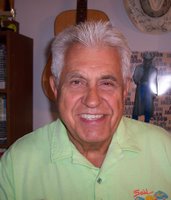GAO Says Government Pesters Wounded Soldiers Over Debts
Donna St. George
Washington Post Staff Writer
Thursday, April 27th
Nearly 900 soldiers wounded in Iraq and Afghanistan have been saddled
with government debts as they have recovered from war, according to a
report that describes collection notices going out to veterans with
brain damage, paralysis, lost limbs and shrapnel wounds.
The report from the Government Accountability Office, to be released at
a hearing today, details how long-recognized problems with military
computer systems led to the soldiers being dunned for an array of debts
related to everything from errors in paychecks to equipment left behind
on the battlefield.
The problem came to light last year, as soldiers' complaints began to
surface and several lawmakers became involved. The GAO had been
investigating other pay problems caused by the defense accounting system
and was asked by Congress to investigate debts among the battle-wounded.
The new report shows a problem more widespread than previously known.
"We found that hundreds of separated battle-injured soldiers were
pursued for collection of military debts incurred through no fault of
their own," the report said.
Last fall, the Army said 331 soldiers had been hit with military debt
after being wounded at war. The latest figures show that a larger group
of 900 battle-wounded troops has been tagged with debts.
"It's unconscionable," said Ryan Kelly, 25, a retired staff sergeant who
lost a leg to a roadside bomb and then spent more than a year trying to
fend off a debt of $2,231. "It's sad that we'd let that happen."
Kelly recalled the day in 2004 when, months after learning to walk on a
prosthesis, he opened his mailbox to find a letter saying he was in debt
to the government -- and in jeopardy of referral to a collection agency.
"It hits you in the gut," he said. "It's like, 'Thanks for your service,
and now you owe us.' "
The underlying problem is an antiquated computer system for paying and
tracking members of the military. Pay records are not integrated with
personnel records, creating numerous errors. When soldiers leave the
battlefield, for example, they lose a pay differential, but the system
can take time to lower their pay.
The government then tries to recoup overpayments, docking pay for
active-duty troops and sending debt notices to those who have left the
military. Eventually, the government sends private agencies to collect
debts and notifies credit bureaus.
The computer system is so broken that 400 soldiers killed in action were
listed as owing money to the government, although no debt notices were
sent, the report said.
A total of $1.5 million in debts has been linked to the 400 fallen
soldiers and 900 wounded troops. Of the total, $124,000 has been repaid.
The government has waived $959,000, and the remainder of $420,000 is
still owed.
Michael Hurst, a former Army finance officer in Arlington who has
studied the issue, said the military should have taken action years ago
to prevent the debts from being created.
"It's a complete leadership failure," he said. "We can't expect the
soldiers to notice mistakes in their pay that the paid professionals
have failed to notice and correct."
Although the GAO report focuses on battle-wounded soldiers who have
separated from the military, there are probably others who were still on
active duty when their debts caught up with them, Hurst said. Factoring
those in, "I would say thousands" are affected by the problem, he said.
The GAO report said that 73 percent of the debts were caused by pay
problems, including overpayments, calculation errors and mistakes in
leave. Other debts were created when soldiers were billed for enlistment
bonuses, medical services, travel and lost equipment.
House Government Reform Committee Chairman Thomas M. Davis III (R-Va.),
who is holding the hearing, has called the phenomenon "financial
friendly fire." Yesterday, his spokesman, Robert White, reacted to the
report, saying: "Literally adding insult to injury, the systems that are
supposed to nurture and support returning warriors too often inflict
additional wounds to their financial health."
In one case cited in the GAO report, the debts meant that a soldier's
family had no money to pay bills and had to send an 11-year-old daughter
to live out of state.
At today's hearing, Army and Defense Department officials are expected
to testify about what is being done to correct the problem. A database
of soldiers wounded in action has been created, but the GAO suggested
that more needs to be done, including congressional action to forgive
more soldiers' debts and provide refunds in certain cases.
Previously the GAO had issued 80 recommendations for improving the Army
payroll processes. Army officials have said they are at work on those
recommendations. An Army spokesman did not return calls yesterday
requesting comment.
© 2006 The Washington Post Company



